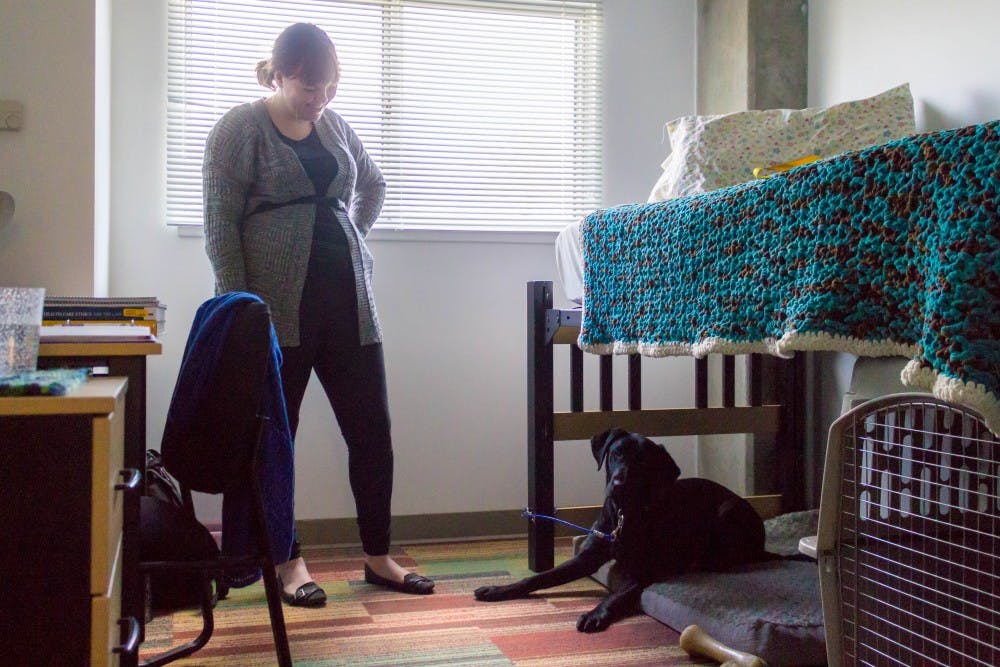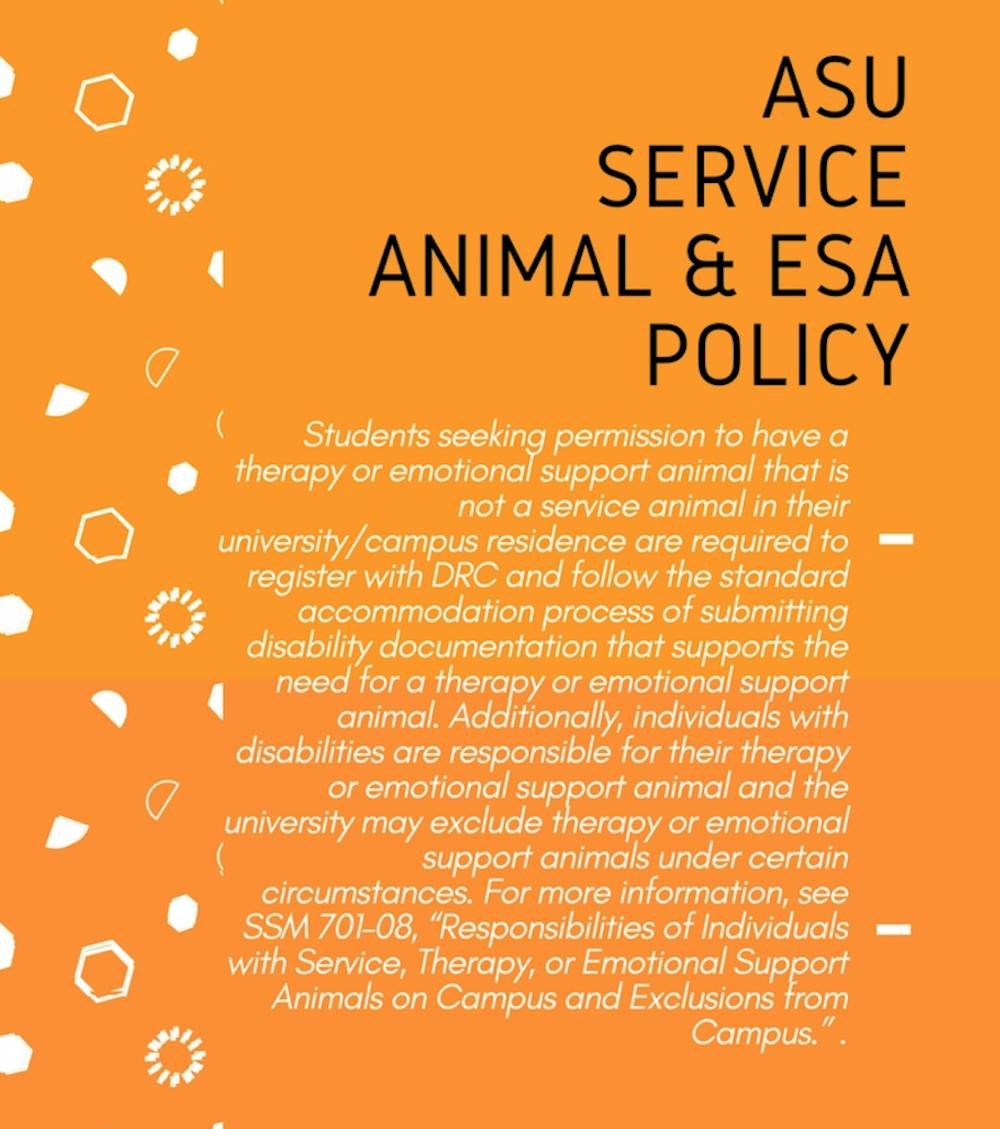Whether it's a pet fish, an emotional support cat or a service dog, there are animals living in the dorms on ASU's campuses.
Students have a variety of reasons to live with an animal companion, but rules and guidelines set up by the University restrict what kind of furry friend can call an ASU campus home.
Journalism sophomore Stefany Marquez said she wanted a pet and decided to get a fish because she knew it would be relatively low maintenance.
“The idea of having a pet like a fish seemed emotionally satisfying," she said. "I technically wouldn’t be alone in my room anymore and that was a pleasant thought.”
Marquez has had a pet fish for the entire spring semester but said that she, like many students, was unaware of what the rules were for bringing her goldfish into the dorm hall at Taylor Place.
“I don’t think many people know they can have a fish in the first place, so not many people do,” Marquez said. “When I first brought my fish into the dorm, I smuggled him and my tank in my backpack.”
According to a University statement, no non-service animals are allowed in the residence halls other than fish in a 10 gallon tank or smaller.
For students wondering what the qualifications are for any type of service animal to live with them in the dorms, the ASU Disability Resource Center is in charge of the approval process and accommodates for students with disabilities.
Nursing freshman Becca Edmonds is currently raising a guide dog in the Taylor Place dorms after being approved by the DRC. She's doing this as a part of a program called Guide Dogs for the Blind, where dogs get training for later use as guide dogs for the visually impaired.
“Under Arizona law, service animals-in-training have the same rights as working service animals,” Edmonds said. “They added that to my file, and I was approved to move him in.”
Edmonds is raising her black labrador Camden while also going though her normal day of classes.
“I’m doing this because I always liked the idea of raising a dog that could have such an impact on improving someone’s life,” Edmonds said.
She said the two biggest challenges associated with having a dog on campus is that people will try to pet him or take photos, and that she has to leave him in her dorm for some of her labs. But overall, she said, it is worth it to be able to participate in training her dog.
Some other options for animals that may not garner as much attention from other students on campus are cats or birds, which are also permitted on campus as emotional support animals.
Business law senior Kaitlyn Durheim is the director of programs for Sparky’s Service Dogs, which is a club that promotes education and awareness about service animals. She has experience training a variety of emotional support and service animals.
“An emotional support animal is essentially a very helpful pet for someone prescribed an ESA (Emotional Service Animal) by a medical professional,” Durheim said.
But students aren't limited to only dogs or cats, Durheim said.
“Almost any animal can be an ESA,” she said, “but only dogs and miniature horses can be service animals.”
Editor's note: Stefany Marquez was a former employee of The State Press. She is no longer with the publication.
Reach the reporter at trivera3@asu.edu or follow @RiveraTaylor21 on Twitter.
Like The State Press on Facebook and follow @statepress on Twitter.





